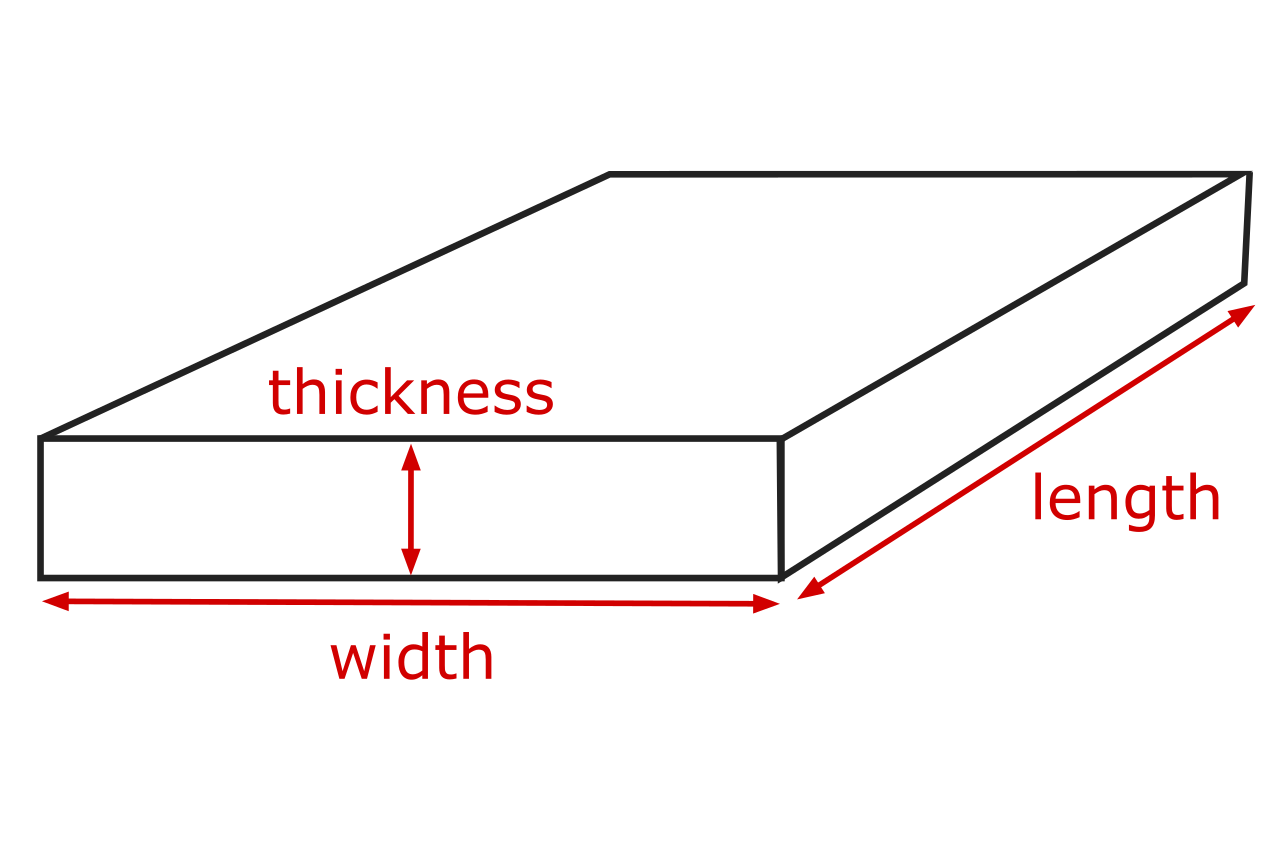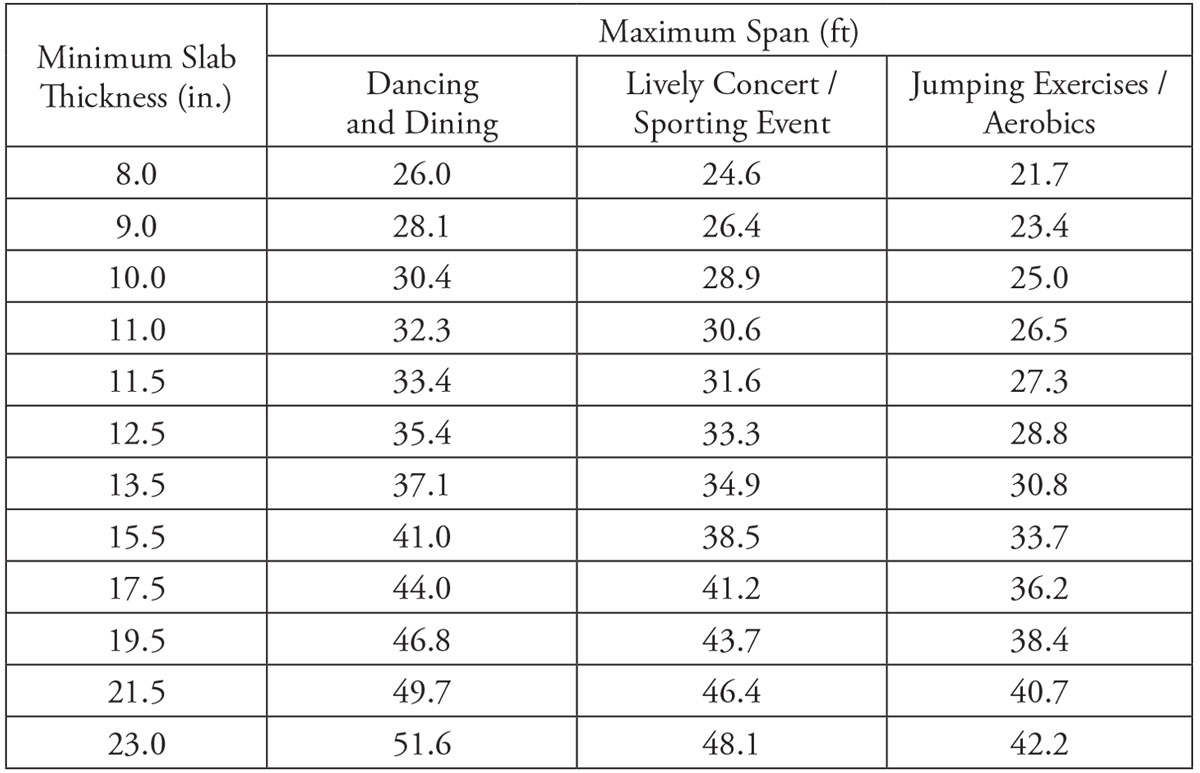Web in general fine aggregate used in concrete floor slabs should have a fm between 2.3 and 3.1. There are many variables, and what works for a patio won’t work for a house or public bridge. Given the industry standard for residential properties is four inches, it’s a good idea to budget for that extra 0.5 inches to provide additional support. Web required thickness of concrete slabs. Properties of the surface are determined by the mixture proportions and the quality of the concreting and jointing operations.
Methods used for finding slab thickness varies for different types of slabs. Web required thickness of concrete slabs. It calculates the thickness required to ensure structural integrity and prevent excessive deflection under the given load conditions. Understanding the load on a floor plate is the initial step to determining the concrete slab thickness. Web most building codes require concrete patio slabs to be laid at a minimum thickness of 3.5 inches with a compressive strength of 3,000 psi.
For concrete slabs on grade, aci 302 recommends the fine aggregate gradation shown in table 6. Web thickness of concrete slab depends on loads and size of the slab. Web the quality of a concrete floor or slab is highly dependent on achieving a hard and durable surface that is flat, relatively free of cracks, and at the proper grade and elevation. Web the concrete slab thickness calculator is designed to help users determine the required thickness of a concrete slab based on the load, span, and allowable deflection. A higher number indicates a coarser material while a lower number indicates and finer material.
Given the industry standard for residential properties is four inches, it’s a good idea to budget for that extra 0.5 inches to provide additional support. Web concrete per square foot slab. Web the quality of a concrete floor or slab is highly dependent on achieving a hard and durable surface that is flat, relatively free of cracks, and at the proper grade and elevation. Web the concrete slab thickness calculator is designed to help users determine the required thickness of a concrete slab based on the load, span, and allowable deflection. It calculates the thickness required to ensure structural integrity and prevent excessive deflection under the given load conditions. Web most building codes require concrete patio slabs to be laid at a minimum thickness of 3.5 inches with a compressive strength of 3,000 psi. Web required thickness of concrete slabs. Web generally, concrete residential house and garage slabs are 4 to 6 inches thick. Understanding the load on a floor plate is the initial step to determining the concrete slab thickness. Web thickness of concrete slab depends on loads and size of the slab. A higher number indicates a coarser material while a lower number indicates and finer material. For concrete slabs on grade, aci 302 recommends the fine aggregate gradation shown in table 6. In general, 6 inch (150mm) slab thickness is considered for residential and commercial buildings with reinforcement details as per design. Also find out the thickness requirements for the concrete apron at the entrance to your driveway. Properties of the surface are determined by the mixture proportions and the quality of the concreting and jointing operations.
Web Thickness Of Concrete Slab Depends On Loads And Size Of The Slab.
There are many variables, and what works for a patio won’t work for a house or public bridge. Web most building codes require concrete patio slabs to be laid at a minimum thickness of 3.5 inches with a compressive strength of 3,000 psi. Web required thickness of concrete slabs. Properties of the surface are determined by the mixture proportions and the quality of the concreting and jointing operations.
A Higher Number Indicates A Coarser Material While A Lower Number Indicates And Finer Material.
Depending on how much weight the slab will hold, your budget, and local building codes, concrete slabs can be up to 20 inches. Web in general fine aggregate used in concrete floor slabs should have a fm between 2.3 and 3.1. Web generally, concrete residential house and garage slabs are 4 to 6 inches thick. Given the industry standard for residential properties is four inches, it’s a good idea to budget for that extra 0.5 inches to provide additional support.
Web The Quality Of A Concrete Floor Or Slab Is Highly Dependent On Achieving A Hard And Durable Surface That Is Flat, Relatively Free Of Cracks, And At The Proper Grade And Elevation.
It calculates the thickness required to ensure structural integrity and prevent excessive deflection under the given load conditions. Web the concrete slab thickness calculator is designed to help users determine the required thickness of a concrete slab based on the load, span, and allowable deflection. Methods used for finding slab thickness varies for different types of slabs. In general, 6 inch (150mm) slab thickness is considered for residential and commercial buildings with reinforcement details as per design.
Web Concrete Per Square Foot Slab.
For concrete slabs on grade, aci 302 recommends the fine aggregate gradation shown in table 6. Also find out the thickness requirements for the concrete apron at the entrance to your driveway. Understanding the load on a floor plate is the initial step to determining the concrete slab thickness.







